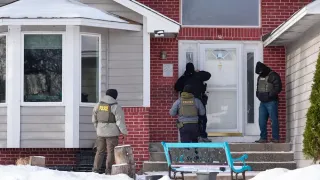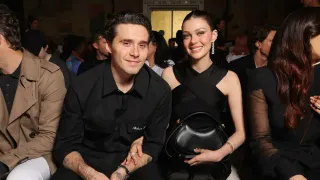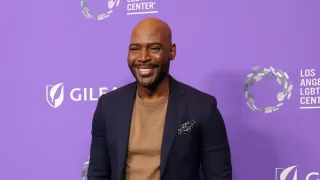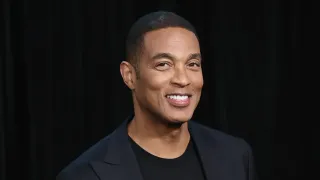February 7, 2014
Durango is a Worthy Three-Row SUV
Kilian Melloy READ TIME: 2 MIN.
Opera is proud, but is it gay? And, what is institutional opera’s position on LGBT issues? These questions were posed to a prominent member of California’s musical community and the conversation produced an insider’s take on the state of the art.
John Churchwell is Head of Music Staff at San Francisco Opera (SFO), Co-Director of the Music Academy of the West’s Vocal Institute, Merola Opera Program alum and, skillful ‘collaborative’ pianist.
He lives in Berkeley with his husband, working at SFO assembling music teams at the service of the conductor for mainstage productions. He has often joined with high-profile gay composers Tobias Picker, Mark Adamo, and prolific Bay Area-based Jake Heggie in creation of their new operas.
An advocate for American music, Churchwell has contributed to world premieres of major contemporary operas, including John Harbison’s “The Great Gatsby,” Philip Glass’ “Appomattox” and John Adams’ “Girls of the Golden West.” His recital performances pair him with vocalists like Renée Fleming, Joyce DiDonato, and Susan Graham. He has recorded with skyrocketing countertenor Aryeh Nussbaum Cohen and accompanied incandescent mezzo-soprano Sasha Cooke, with whom he co-directs the Lehrer Vocal Institute Music Academy of the West.
His assistant conducting duties at the Met and SFO include collaborations with James Levine, Nicola Luisotti and, current SFO Music Director Eun Sun Kim. His expansive CV (and there are many more credits) puts John in a unique position to observe, critique and, mentor. He does it with genial self-confidence and helpful advice. The youngster from Knoxville, Tennessee has made a very successful career and, accomplished it all proudly out of the closet.
Year-round celebration
We shared a chuckle at those who want to pigeonhole opera. There are gay-specific operas, think “Fellow Travelers” and “Harvey Milk Reimagined” for recent examples. More than a few works with gay subtexts abound, like almost everything by Benjamin Britten. But opera is gay as it relates to listeners and participants.
If everyone who identifies as LGBT left opera tomorrow, the business would suffer more damage than any funding cuts Trump or Musk could ever inflict. Is pride visible at the Opera? That would be a yes. Integration and mutual trust are an attainable goal.
Churchwell says, “Pride is something to be celebrated all year; pride in the work and the excellence of the artists. Being out is safe in San Francisco, but take notice of LGBT performers and offstage workers everywhere. This is a team effort.”
The Merola Opera Program Summer Festival begins June 26 with “A Grand Night for Singing: An American Songfest” at San Francisco Conservatory of Music’s Concert Hall, 50 Oak Street.
Churchwell was a pianist/coach for Merola ’96 and, was honored at the Merola Opera Program 2025 gala in April as he received this year’s Distinguished Alumni Award. He can’t attend the upcoming recital because he is giving a Lehrer Vocal Institute masterclass in Santa Barbara that same day.
He won’t be working on SFO’s summer season either. He will be in the audience on the eve of Pride Weekend, however. He really deserves a break and some fun time in the War Memorial Opera House.
Puccini & Mozart
Summer season repertory performances continue through June 21 with two casts singing in a revival of director John Caird’s endearing vision of Puccini’s “La Bohème.”
Mozart’s early gem, “Idomeneo,” runs June 14–25. The new to San Francisco production features tenor Matthew Polenzani in the title role, mezzo-soprano Daniela Mack as his son and astonishing Chinese soprano Ying Fang makes her house debut. Eun Sun Kim conducts.
Love it or leave it, Opera is proud and sings it out loud as the season wraps Friday, June 27 at 7:30 p.m. with the festive Pride Concert.
The extravaganza stars Trans non-binary mezzo-soprano Nikola Printz; baritone Brian “Yeah, I’m definitely still gay” Mulligan (Instagram post) and Mezzo-soprano Jamie Barton, who describes herself as a “proudly queer opera singer into drag queens, bluegrass, social justice, equality, and cats.”
Sapphira Cristál (replacing Monet X Change) hosts the 80-minute program featuring music by LGBT composers and songwriters including Leonard Bernstein, Tchaikovsky, Jake Heggie, Freddie Mercury, Melissa Etheridge and Indigo Girls.
Eun Sun Kim opens with Bernstein’s overture to “Candide,” then passes the baton to Robert Mollicone for the rest of the show. Tal Rosner’s video designs fill the hall.
Displays include a lobby exhibit by the GLBT Historical Society, sections of the AIDS Memorial Quilt by the National AIDS Memorial, and an Interactive Pride Altar by the Marigold Project. Divas, divos and opera queens unite. Grab a tiara and join the party.
San Francisco Opera performs Puccini’s ‘La Bohéme,’ June 12-21, and Mozart’s ‘Idomeneo,’ June 14-25. Both $28-$438; also livestreamed. Pride Concert June 27, 7:30pm, $30-$225. Each at War Memorial Opera House, 301 Van Ness Ave. http://www.sfopera.com






